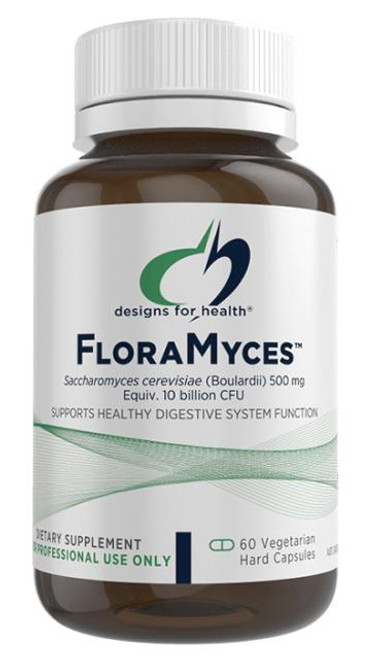Designs for Health - AU
- Delivers 150 mg of elemental magnesium per serve
- Provides three sources of magnesium for enhanced efficacy/physiological effect
- Contains Amino acid chelate, Glycerophosphate and Orotate
- Supports energy levels and muscle health
- Maintains cardiovascular system health
- Supports nervous system function
- One-per-day dosage for improved patient compliance
- Vegan Friendly
Description:
Magnesium is an essential mineral that acts as regulating cofactor in over 300 enzymatic reactions, affecting 80% of the body’s metabolic functions including energy synthesis, brain, bone health and heart and skeletal muscle function. Endogenous magnesium stores are primarily (99%) located in bone, muscles and soft tissues and intracellularly (in either ionised form, bound to proteins, molecules or ATP), while 1% occurs in serum (in the biologically active free-ionised form, bound to protein or anions) and red blood cells. Magnesium homeostasis is regulated by the intestines (absorption), bones (storage) and kidneys (urinary excretion). Following magnesium ingestion, intestinal absorption occurs within an hour, and following reabsorption by the kidneys is transported to the liver and subsequently circulates systemically in the blood before renal excretion. However, the amount of magnesium that is absorbed (and renally reabsorbed) is highly variable due to the influence of many factors, significantly endogenous magnesium status – low levels result in higher absorption while high levels induce lower absorption rates (up to 80% vs 30-50%, respectively). Other factors that influence magnesium absorption include chronic insufficient intake of magnesium or absorption cofactors (selenium, B6 and D), excessive phytate, saturated fat, fibre, alcohol, calcium, phosphorus, sodium, caffeine, alcohol, excessive or insufficient protein intake, age, stress, hormones (elevated thyroid hormones, oestrogen), medications, gastrointestinal dysfunction, diabetes, excessive lactation, heat and prolonged exercise. Consequently, it is estimated that at least half of the average Western population do not meet the daily recommended magnesium intake levels (which aim to prevent frank rather than subclinical deficiencies), while 10-30% have a subclinical magnesium deficiency. In addition, magnesium deficiency prevalence is also attributed to reduced fruit and vegetable magnesium concentrations, over-consumption of refined grains and processed foods, inadequate intake of magnesium-rich foods (leafy greens, nuts and whole grains), the high amount of magnesium lost during food preparation and processing and the increased consumption of purified drinking water.
It is also likely to be influenced by the challenges associated with accurately diagnosing magnesium deficiency due to serum levels (comprising 1% of total body magnesium) not being an accurate indicator of magnesium status, as well as the types of symptoms and health effects associated with subclinical magnesium deficiency. Such symptoms include impaired appetite, nausea, vomiting, fatigue, weakness, numbness, tingling, muscle contractions, cramps, seizures, sudden behaviour or personality changes and irregular heartbeat. Taken together, maximising the therapeutic potential of magnesium requires these many factors to be considered, and when supplementation is indicated, the use of magnesium sources with enhanced efficacy and biological activity.
Magnesium chelates
Along with the many factors discussed, the bioavailability and efficacy of magnesium supplementation is determined by dose frequency and load. It is also significantly influenced by the certain chemical properties of the chelated ligand, including its solubility and capacity to bind to magnesium’s active sites (the latter being associated with reduced magnesium hydration and laxative potential). The higher solubility and active-site binding capacity of organic and amino acid-based ligands contribute significantly to their optimal bioavailability. The chelates used in Tri-Mag Supreme™, amino acid chelate, orotate and glycerophosphate, have each been demonstrated to have optimal bioavailability and capacity to support endogenous magnesium levels/concentrations.
Bone health
The importance of magnesium for supporting bone health is emphasised by the high proportion of the body’s total magnesium stored in bones (60-70%). The mechanisms by which magnesium maintains healthy bones is multifaceted and includes increasing bone crystal formation, size and brittleness via binding to the hydroxyapatite crystal surface, promoting osteoblast synthesis and osteoclastic bone resorption (the latter by increasing pro-inflammatory cytokine secretion) and supporting vitamin D activation, which influences bone growth and maintenance.
Muscle health
The second highest concentration of endogenous magnesium body stores is in skeletal muscle tissues (27%). Like its role in bone tissue, magnesium is involved in a number of functional processes required to maintain muscle health. These mechanisms include supporting healthy protein synthesis and turnover balance, energy metabolism (as a cofactor for adenosine triphosphate) and maintaining normal muscle contraction, relaxation and neuromuscular function (as a Ca2+ antagonist).
Directions to use:-
Adults: Take 1 capsule per day or as directed by your healthcare professional.
Allergen Information
- No added: Gluten, dairy, soy, or nuts
Warnings:
If symptoms persist, seek the advice of healthcare professional







